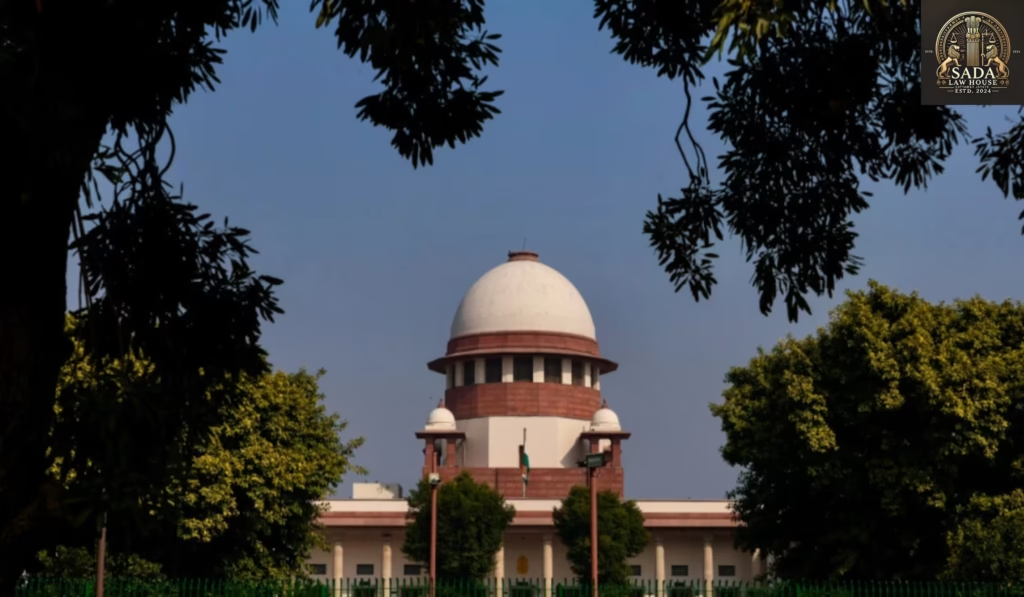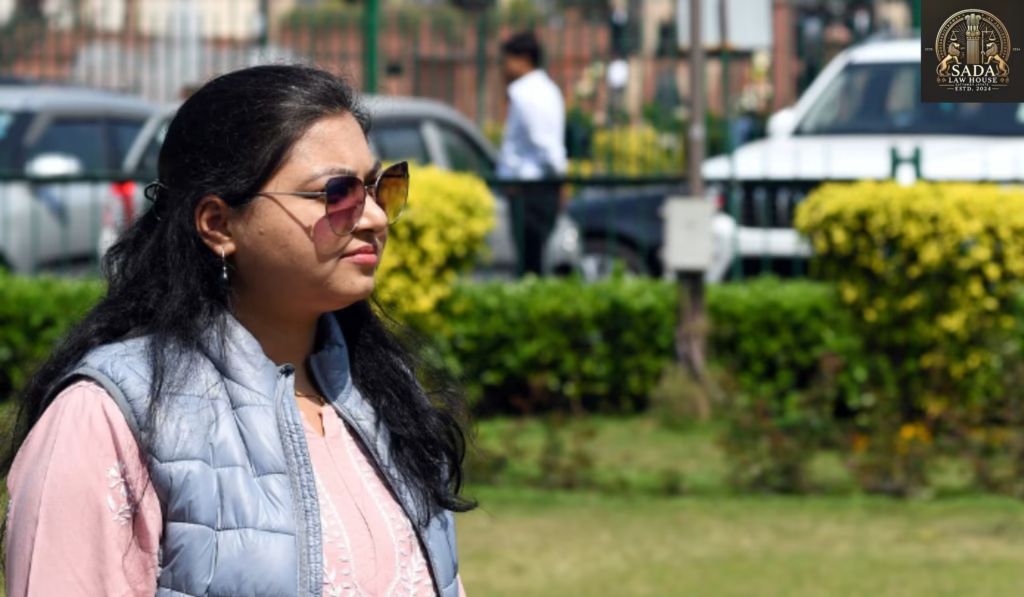Supreme Court Upholds ITBP Constable’s Dismissal for Cash Box Theft: ‘Guardian Turned Looter’
Trending Today INTERNSHIP OPPORTUNITY AT PUTHRAN & ASSOCIATES Supreme Court Upholds ITBP Constable’s Dismissal for Cash Box Theft: ‘Guardian Turned Looter’ JOB OPPORTUNITY AT ENFOLD JOB OPPORTUNITY AT PHYSICSWALLAH, NOIDA CALL FOR PAPERS BY INTERNATIONAL JOURNAL OF ADVANCED LEGAL RESEARCH ONLINE CERTIFICATE COURSE ON BANKING AND FINANCE LAW BY INDORE INSTITUTE OF LAW AND ILW LEGAL JOB OPPORTUNITY AT UNDP, DELHI JOB OPPORTUNITY AT ELT CORPORATE PRIVATE LIMITED, DELHI INTERNSHIP OPPORTUNITY AT THE COMPETITION COMMISSION OF INDIA 7TH MODEL YOUTH PARLIAMENT 2025 BY PUBLIC CONCERN FOR GOVERNANCE TRUST Supreme Court Upholds ITBP Constable’s Dismissal for Cash Box Theft: ‘Guardian Turned Looter’ PRABHAT KUMAR BILTORIA 10 June 2025 The Supreme Court upholds the dismissal of an ITBP constable for cash box theft, emphasizing zero tolerance for misconduct in India’s disciplined paramilitary forces. Read the full case details and legal implications. Supreme Court Upholds Dismissal of ITBP Constable for Theft In a strong message on accountability and integrity in the armed forces, the Supreme Court of India recently upheld the dismissal of a Indo-Tibetan Border Police (ITBP) constable for stealing from a cash box he was entrusted to protect. ‘Guardian Became Looter’: A Violation of Duty and Trust The case centered on a constable who, while serving as a sentry in a sensitive border region in 2005, broke open a cash box containing funds for ITBP company personnel. The bench, comprising Justice Surya Kant and Justice N. Kotiswar Singh, emphasized the severity of the misconduct, stating that the accused betrayed the faith placed in him and turned into a plunderer. Background of the Incident and Initial Proceedings The accused, appointed in 1990, allegedly committed the theft on the night of July 4–5, 2005. Following an FIR and a Court of Enquiry, the constable admitted guilt and was dismissed on November 14, 2005, based on findings by the Summary Force Court. Legal Challenge and High Court’s Intervention The respondent appealed the dismissal in the Uttarakhand High Court, arguing his confession was coerced. While the court acknowledged the admission and cooperation with the disciplinary authority, it questioned the proportionality of the punishment, directing the ITBP to reassess the penalty. Supreme Court Restores Dismissal: Discipline Over Leniency The Supreme Court overturned the High Court’s ruling, reinforcing that members of disciplined forces must uphold the highest ethical standards. The judgment clarified that the principle of proportionality in disciplinary action depends on case-specific facts, especially when moral turpitude and repeated misconduct are involved. Repeat Misconduct and Final Judgment Notably, the constable had been penalized for eight prior instances of minor misconduct. Taking this history into account, the Supreme Court concluded that the High Court overstepped its discretionary jurisdiction. The constable’s dismissal was therefore deemed both lawful and necessary. Key Takeaways: Upholding Integrity in Paramilitary Forces This case serves as a reminder of the strict standards required in forces like the ITBP, where integrity, discipline, and trust are non-negotiable. The ruling highlights how courts balance constitutional principles such as proportionality with institutional discipline, especially in India’s paramilitary and border forces. Leave a Reply Cancel Reply Logged in as Sada Law. Edit your profile. Log out? Required fields are marked * Message* Live Cases Supreme Court Upholds ITBP Constable’s Dismissal for Cash Box Theft: ‘Guardian Turned Looter’ Supreme Court Upholds ITBP Constable’s Dismissal for Cash Box Theft: ‘Guardian Turned Looter’ Sada Law • June 10, 2025 • Live cases • No Comments Karnataka High Court Takes Suo Motu Action Over Bengaluru Stampede During Welfare Distribution Karnataka High Court Takes Suo Motu Action Over Bengaluru Stampede During Welfare Distribution Sada Law • June 9, 2025 • Live cases • No Comments Supreme Court Rules High Courts Cannot Suo Motu Enhance Convict’s Sentence in Appeal Supreme Court Rules High Courts Cannot Suo Motu Enhance Convict’s Sentence in Appeal Sada Law • June 9, 2025 • Live cases • No Comments 1 2 3 … 5 Next »


